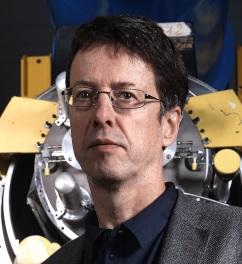The Large Hadron Collider (LHC) has recently completed a two-week beam test following a lengthy post-Long Shutdown 2 (LS2) campaign of hardware commissioning, magnet circuit powering tests and dipole training.
The dipole training was not without issues. Two separate quench-induced faults made it necessary to warm up two sectors: one for a magnet exchange (sector 78) and the other for a bypass diode exchange (sector 23). With the warm-up and cool-down of a sector taking a total of around 10 weeks, the elapsed time for both interventions was four to five months.
A two-week beam test in the latter part of the year was always on the cards and, once the schedule had been adapted to accommodate the knock-on effects of the repairs, final preparations started on the evening of Thursday, 14 October. Lack of time to fully recommission the magnet circuits of the two sectors meant that the test was limited, in the most part, to beam at 450 GeV.
With the experiments’ caverns closed and vacuum valves open, a thorough checkout without beam saw extensive tests of the machine protection systems, as well as other key systems, such as injection and beam dump. Following the checkout, circulating beams were established on the evening of Tuesday, 19 October.
What followed was an impressive tour de force. Days and nights were dedicated to a dense programme of set-up with beam of various systems (RF, collimation, beam dump, injection and the remarkably versatile transverse feedback system), machine protection tests, measurement and correction of optics (revealing crossed connections on two quadrupoles at Point 3), aperture measurements (all good except…†), commissioning of beam instrumentation (beam position and beam loss monitors, tune measurement, profile measurements (synchrotron light, wire scanners)), tune and orbit feedback systems, injection and dump line studies and so on. Software tools – such as automatic beam loss maps, automatic alignment of collimators and luminosity scans – were successfully commissioned. The availability of the whole accelerator complex during the period was around an eminently respectable 90%.
All this led to collisions and stable beams (at 450 GeV) and the chance for the LHC experiments to check out the performance of their upgraded detectors. FASER (Forward Search Experiment) saw first tracks going through the full detector for the first time. The success of the test from the experiments’ perspective was marked by the arrival of the traditional bottles of champagne, which, once emptied, will take their place on display in the CERN Control Centre. As a coda, a ramp of pilot bunches to 3.5 TeV was performed without problems.
Over the years, I’ve spent enough time in the control room to at least partially appreciate what the achievements of these two weeks represent. The confluence of the rigorous technical work on all accelerator and technical systems during LS2, deep preparation and testing, years of experience, a permanent eye on the destructive potential of the beam and the hardware, the development of tools and instruments, system operability, a profound grasp of the accelerator physics involved, the understanding that the processes and problems are amenable to understanding, all bound together by a tremendously collaborative culture. An appropriate testament to the commitment, passion and the more concrete investments that have gone into the LHC.
---
† The beam, however, was to have the last word and duly undeceived once more. An unidentified lying object (ULO) was revealed by beam losses during the test, and its profile and location were rapidly established. Radiography and tomography revealed a rogue RF finger from a magnet interconnect plug-in module in the aperture of the beam. After evaluation of the potential impact of running with the finger in place during Run 3, the decision was taken to warm up the sector concerned and fix it. This will shift the planned 2022 start-up with beam a bit – planning to be revised in due course.

